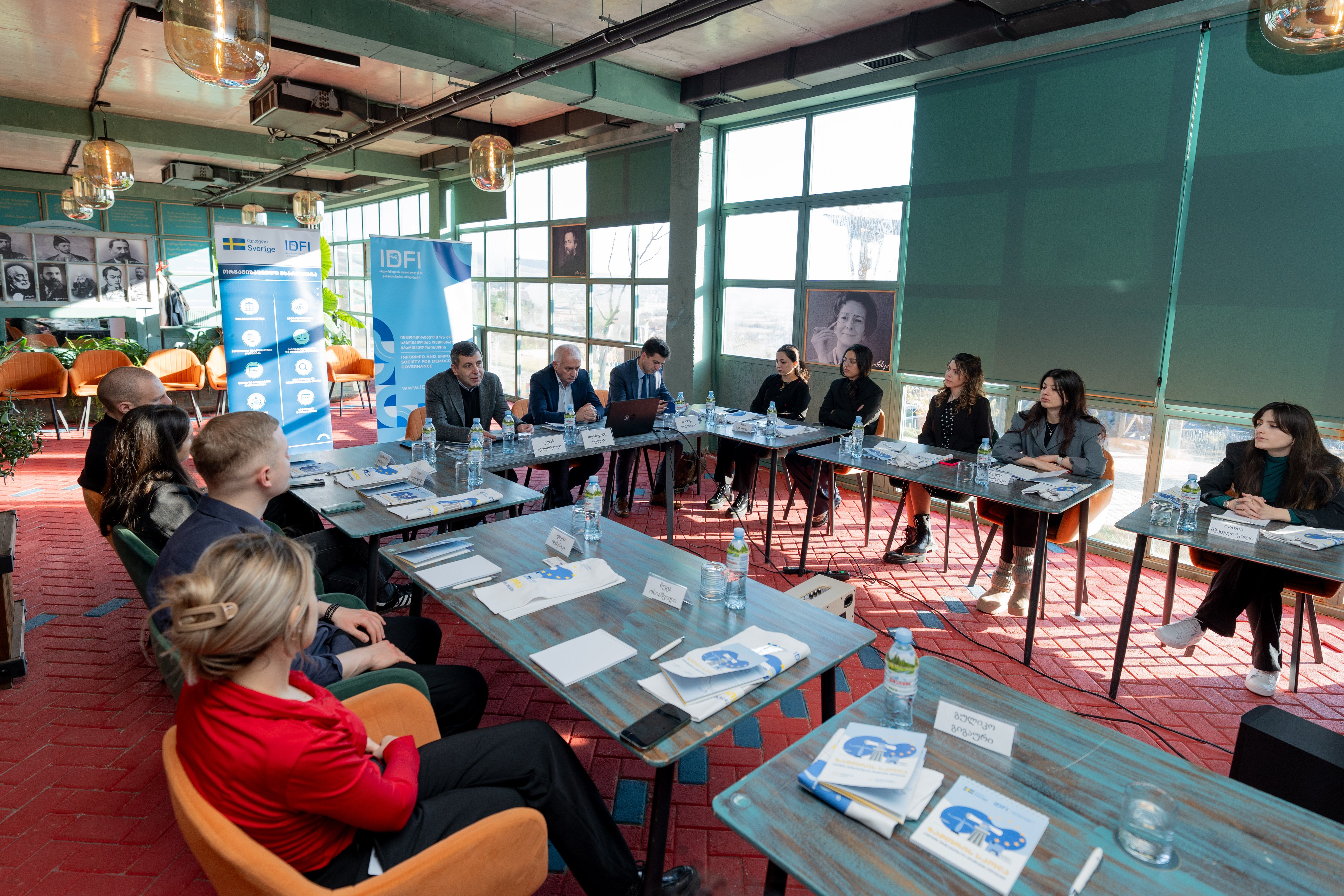


 On February 9-13, 2024, IDFI, with the support of the Swedish International Development Cooperation Agency (Sida), held a Winter School "Rule of Law and Human Rights". The Winter School was held for the third time, and its main goal was to raise the awareness of the participants regarding the issues covered by the program, to conduct discussions on the existing challenges, and to facilitate the exchange of views.
On February 9-13, 2024, IDFI, with the support of the Swedish International Development Cooperation Agency (Sida), held a Winter School "Rule of Law and Human Rights". The Winter School was held for the third time, and its main goal was to raise the awareness of the participants regarding the issues covered by the program, to conduct discussions on the existing challenges, and to facilitate the exchange of views.
In light of the decision of the European Council of December 14, 2023, on granting EU candidate country status to Georgia the thematic scope of the Winter School was largely related to Georgia's integration into the European Union, the conditions set by the European Union for Georgia, and other related issues.
The Programs Director of IDFI – Levan Avalishvili, the Head of Development Cooperation/Deputy Head of Mission at the Embassy of Sweden to Georgia - Erik Illes, the Judge of the Constitutional Court of Georgia - Teimuraz Tughushi, and the Head of IDFI’s Rule of Law and Media Direction - Giorgi Davituri welcomed the participants and congratulated of being selected based on the competition at the opening ceremony of the event.
Overall, 24 participants took part in the Winter School, including both students and civil servants. They were selected as a result of several stages of competition.
Experts with different professional and academic backgrounds were invited to the Winter School as speakers: Judge of the Constitutional Court of Georgia - Teimuraz Tughushi, Professor of International Human Rights Law - Konstantine Korkelia, Doctor of Law, Professor - Davit Jandieri, Manager of the European Integration Program of the Civil Society Foundation - Vano Chkhikvadze, Co-founder of Platform “Komentari”, Editor of the Politics of Law Direction - Sofo Verdzeuli, Director of the Judiciary and Democracy Program of the Social Justice Center - Guram Imnadze, Researcher of Gnomon Wise - Davit Zedelashvili.
Participants listened to presentations and participated in relevant discussions around the following substantive issues:
1. The principle of separation of powers, the binding of the state by fundamental human rights, and the role of the Constitutional Court;
2. The content of the obligation provided for in Article 78 of the Constitution of Georgia and the perspective of its application;
3. The role, purpose, and procedure for applying before the European Court of Human Rights, application of standards and precedents at the national level;
4. The process of Georgia's integration into the European Union and the priorities and conditions set for Georgia;
5. Judiciary in Georgia: Waves of reforms and current challenges;
6. Improving the Judiciary and the system of extraordinary integrity checks - "Vetting";
7. Democratic oversight of the Security Sector;
8. Fight against corruption and de-oligarchization;
9. The public oversight function of civil society organizations and media;
10. Role of independent institutions and existing challenges;
11. The use of interstate mechanisms for the purposes of human rights protection and the experience of Georgia.
At the end of the Winter School, the participants were awarded certificates.